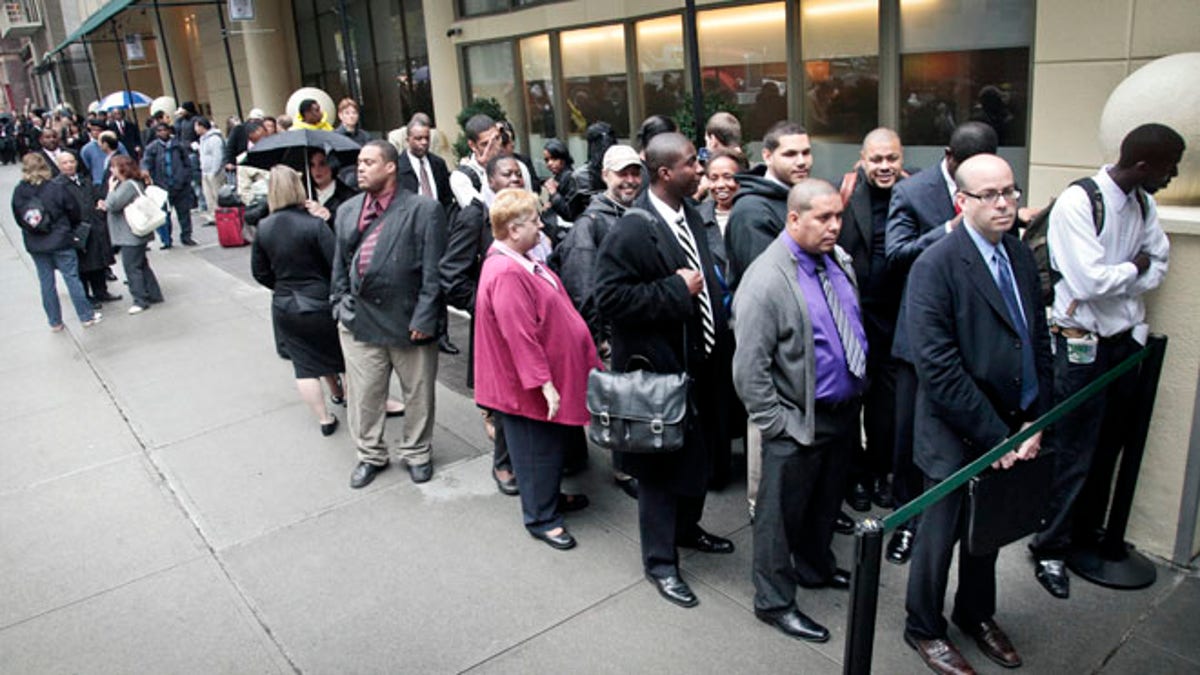
FILE: Oct. 24, 2012: Job seekers wait in line to see employers at a National Career Fairs' job fair in New York. (AP)
The number of people seeking U.S. unemployment benefits fell sharply last week to a seasonally adjusted 410,000, though the figure was elevated for the second straight week by Superstorm Sandy.
The Labor Department said Wednesday that applications dropped by 41,000 from the previous week, when the storm drove applications to their highest level in 18 months. The four-week average, a less volatile measure, rose by 9,500 to 396,250.
Sandy could distort the data for another week, department officials say. The storm caused nearly 44,000 people in New York and 31,000 in New Jersey to seek benefits two weeks ago, according to the latest state data available.
Before the storm, weekly applications had fluctuated this year between 360,000 and 390,000. At the same time, employers added an average of nearly 157,000 jobs a month. That's barely enough to lower the unemployment rate, which was 7.9 percent in October.
There are some signs the job market is improving. Employers added 171,000 jobs in October and hiring in August and September was stronger than first estimated, the department said earlier this month. The economy gained an average of 174,000 jobs a month in the July-September quarter. That's up from 67,000 a month in April through June.
The unemployment rate rose slightly in October because more Americans began looking for work. That suggests some felt their chances of finding a job had improved. Not all of them were hired, which pushed up the unemployment rate. The government only counts people as unemployed if they are actively searching for work.
Federal Reserve Chairman Ben Bernanke said in a speech Tuesday that despite some improvement, the job market is still weak. According to minutes of the Fed's last policy meeting, the central bank may unveil a bond buying program in December to drive down long-term interest rates and boost growth and hiring.
One bright spot for the economy is the steady housing recovery. Economists hope that it could lead to more hiring. Homebuilders broke ground last month on the most new homes and apartments in more than four years. Builders' confidence increased this month to its highest level in 6 1/2 years.
Sales of previously occupied homes have risen nearly 11 percent in the past year. And home prices are also increasing steadily, which makes homeowners feel wealthier and could encourage them to spend more.
The economy is expanding at a modest pace. Many economists now predict growth at an annual rate of roughly 3 percent in the July-September quarter, up from the initial estimate of 2 percent reported last month. The government releases its second estimate for third-quarter growth on Nov. 29.
Still, many economists say the economy is growing in the current October-December quarter at an annual rate below 2 percent -- too slow to make much of a dent in unemployment.




